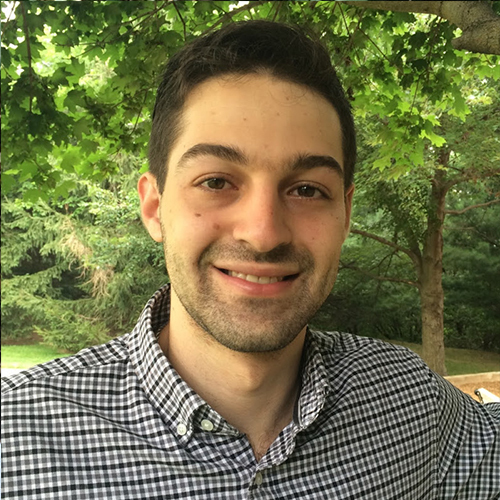Git Merge 2025: September 29 - 30
GitHub HQ, San Francisco, CACelebrating 20 years of Git
Git Merge is a conference dedicated to the version control tool that started it all—and the people who use it every day. As Git marks its 20th anniversary, join us to explore its impact, evolution, and future.
About Git Merge
Git Merge is dedicated to amplifying new voices in the Git community and showcasing the most thought-provoking projects from developers, maintainers, and teams around the world.
Speakers
-

Scott Chacon
CEO & Co-founder, GitButler
-

Natalie Marleny
Co-Founder & Software Engineer, Gitlip
-

Taylor Blau
Principal Software Engineer, GitHub
-

Patrick Steinhardt
Engineering Manager, GitLab
-

Dhruva Juloori
Senior Software Engineer, Uber
-

Fedor Sheremetyev
Co-founder, VisualSVN & VisualJJ
-

brian m. carlson
Staff Software Engineer, GitHub
-

Pillippa Pérez Pons
Software Engineer
-

Chris Griffing
Developer Advocate, GitKraken
-

Jacob Stopak
Founder, initialcommit.com
-

Usman Akinyemi
Student, Plaksha University (Computer Science and Artificial Intelligence).
-

Lita Cho
Founder/CTO, Moment Technologies
-

Steffen Hiller
Staff DevOps Architect, GitHub
-

Elijah Newren
Software Engineer, GitHub
-

Piyush Acharya
Founder, DNAnalyzer
-

Zoran Petrovic
Software Developer & Technical Consultant
-

Matteo Bianchi
Solutions Engineer, GitHub
-

Arman Moztarzadeh
Student and Campus Expert, University of British Columbia
-

Martin von Zweigbergk
Senior Software Engineer, Google
-

PJ Metz
Program Manager, GitHub
September 29th
8:00am
Registration and breakfast
9:00am
10:00am
10:15am
Break ☕️
12:00pm
Lunch 🍔 🥗 🍕
3:00pm
Break ☕️
6:00pm
Cocktail reception 🍸
8:00pm
Doors close
September 30th
10:00am
1pm
Experience
Getting to Git Merge
Travel tips for every leg of your trip.
Event details
Where:
GitHub HQ, 275 Brannan Street, San Francisco, CA, USA
When:
September 29 - 30, 2025
Travel and lodging
By plane:
We recommend flying into San Francisco International Airport (13 miles away from the venue) or Oakland International Airport (19 miles away from the venue).
By car:
Public parking lots are available near the venue at your own cost. You’ll also find a variety of ridesharing, rental car services, and even self-driving cars(!) in the San Francisco area.
By public transport:
The venue is walking distance from the Montgomery BART and San Francisco Caltrain stations.
Lodging
You’ll find lots of hotels and AirBnBs near the venue.
GitHub HQ
Where:
GitHub HQ, San Francisco, CA, 94588
When:
Sep 29, 2025 6pm - 8pm
We’ll be closing out the day with a reception. Unwind from the day, meet more attendees, and enjoy a cocktail or two.
Beyond Git Merge
Looking for more to do while you’re in town? Join nearby events hosted by our sponsors. More details coming soon.
FAQ
Refunds and waitlists
- Can I get a refund for my ticket?
- Yes, you can get a refund for Git Merge 2025. To request a refund:
- Log in to your Eventbrite account
- Click Tickets in the drop-down menu on your profile photo in the top-right corner
- Click Git Merge 2025
- Click Request a Refund and complete the form
- How do I change the name or selections on my ticket?
- Log into your Eventbrite account or open your ticket confirmation email:
- Find Order summary details
- Click View and manage your online order
- Find Edit your ticket type
- Make necessary updates to the ticket profile and hit save
Sessions and content
- Will the event be recorded or live streamed?
- Sessions will be recorded and made available on YouTube after the event. We will be live streaming the event. Please register for a Free Remote Pass.
Food and beverage
- Do you provide breakfast and lunch?
- A light breakfast, full lunch, and snacks will be served with vegetarian, vegan, dairy-free, and gluten-free options.
- What time are meals served?
- You can see meal times in our event schedule. Please leave enough time to pick up your badge and grab a bite to eat before start time.
Cocktail Reception
- Where and when is the Git Merge closing reception?
- The reception will be at GitHub HQ from 6-8 pm on Sep 29th. Complimentary beverages and light bites will be served.
- Will non-alcoholic beverages be available?
- Yes.
- Can I bring a guest to the reception?
- Only registered attendees with a badge will be permitted to attend the closing reception.





